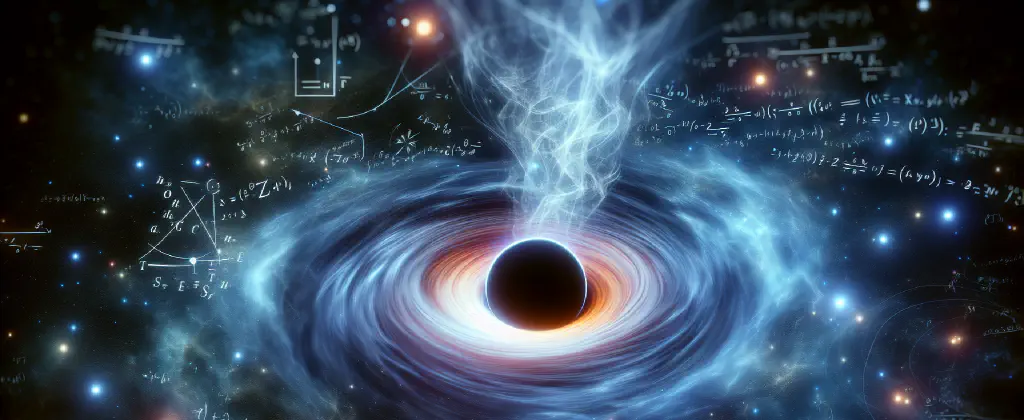14. December 2023
Are Black Holes Truly Singularities?

Black holes, mysterious and captivating objects in the universe, have long intrigued scientists and astronomers. One question that has fascinated many is whether black holes have singularities. A singularity refers to a point of infinite density and gravity within a black hole, where traditional laws of physics may break down. In this article, we will explore some insights from the scientific community regarding this intriguing topic.
The Unfalsifiable Nature of Black Holes
One commenter points out the challenge of making assertions about what lies beyond the event horizon of a black hole since no information can escape that region. This leads to a situation where claims about the nature of black holes become unfalsifiable. It becomes impossible to verify or disprove theories about the interior of a black hole since we cannot observe it directly.
Information Paradox and Hawking Radiation
The information paradox associated with black holes has raised interesting questions about their nature. Recent theories propose that information may be encoded in the Hawking radiation emitted by black holes. This radiation carries information about the matter and energy that falls into the black hole, and with the proper decoding, one could theoretically peer inside the black hole. However, it is important to note that this does not provide direct information about what is happening inside the black hole itself.
Continuous vs. Discrete Nature of Spacetime
As we delve deeper into the discussion, the question arises: Is space continuous or discrete? Some argue that for space to be truly continuous, particles would need to have infinite position information. However, others challenge this idea and suggest that particles simply exist at specific positions in spacetime, without the need for continuous detailed measurement. It is also worth considering that the limitations imposed by the Planck length suggest a fundamental limit to our ability to observe the continuity of spacetime.
Challenges of Reversing Simulations and Quantum Uncertainty
The notion of reversing simulations and obtaining detailed information about the past or the interior of black holes is met with skepticism. Some argue that the complexity and chaos of the quantum world make it difficult to play simulations in reverse. Additionally, the Heisenberg uncertainty principle and the Planck length introduce limitations that prevent us from observing perfect continuity or obtaining complete information.
The Puzzling Nature of Black Holes
The discussion surrounding black holes and their singularities is both fascinating and complex. While there are ongoing efforts to understand the nature of black holes and their interiors, many aspects remain unknown. Theoretical frameworks such as general relativity provide valuable insights, but they face limitations when applied to the extreme conditions inside black holes. The quest to unravel the mysteries of black holes continues, and new discoveries and theories are sure to follow.
In conclusion, the true nature of black holes and whether they have singularities remains an open question. As we explore and push the boundaries of scientific understanding, we continue to unlock the secrets of the universe, one enigmatic black hole at a time.